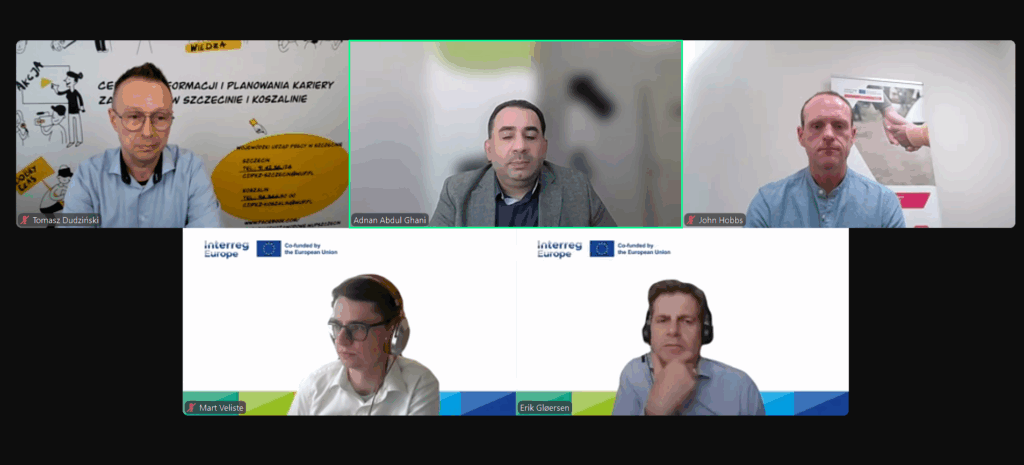Social Integration of Migrants – Keynote Presentation from the SALAM Project at the Interreg Europe Webinar
15/05/2025

On 15 May 2025, Adnan Abdul Ghani, Project Manager and Migration Expert at Save the Children Sweden, delivered a keynote presentation during a webinar hosted by the Interreg Europe Policy Learning Platform. Representing the SALAM project, – Sustainable AccessibIlity to the LAbour Market Adnan showcased an integration strategy co-developed in Mark Municipality, located in Västra Götaland County – a proud member of EARLALL.
As communication manager of the SALAM project, EARLALL supports the dissemination of such impactful local practices across European regions.
Adnan Abdul Ghani’s presentation, titled “Integration strategy in action: Empowering change through co-creation and a child-centred approach”, introduced a comprehensive, participatory model of migrant integration rooted in inclusion, community collaboration, and children’s rights. The strategy is part of the SALAM project and represents a replicable model for regions across Europe.
The case study focused on Mark Municipality, part of Västra Götaland County, Sweden, where local authorities, NGOs, and communities have co-developed a sustainable integration approach in alignment with EU values and local needs.
The presentation was part of the webinar “Social Integration of Migrants”, held online on 15 May 2025 by Interreg Europe, gathering policy experts, practitioners, and stakeholders across Europe.
In the context of increasing migration trends influenced by the war in Ukraine and global instability, the role of local and regional authorities has become central. This webinar aimed to exchange good practices and highlight models of integration that are sustainable, inclusive, and scalable – like the one implemented in Västra Götaland County.
Key Messages from the Keynote Presentation
Integration as a Shared Responsibility
Adnan highlighted that successful integration is not the sole responsibility of governments. It requires collaborative efforts between public institutions, civil society, and local communities. NGOs bring trust and innovation, while public authorities offer structure and legal grounding. This partnership fosters social cohesion, bridges service gaps, and enhances inclusion.
EU-Aligned, Locally Rooted
The strategy in Mark is strongly aligned with the EU Action Plan on Integration and Inclusion (2021–2027), addressing:
- Inclusion as a two-way process
- Cross-sector collaboration
- Targeted support and gender equality
- Combatting discrimination
- Use of digital tools
- Smart use of EU funding instruments
The policy focuses on four core sectors: education, employment, housing, and health.
Co-Creation through Data and Participation
Using child impact analyses, municipal reports, and stakeholder consultations, the strategy was developed through evidence-based planning and wide-ranging community engagement. A Co-Creation Committee guided 35 external consultations, and stakeholder mapping ensured participation from refugees, civil society, local institutions, and businesses.
A Child-Centred, Rights-Based Approach
Children and youth are at the heart of the strategy, in line with the UN Convention on the Rights of the Child. The approach includes mental health support, educational access, and social participation. It also addresses housing segregation, economic exclusion of women, and systemic barriers — all through a human rights lens.
Four Focus Areas for Inclusive Integration
- Participation: Local spaces, cultural events, and civic engagement
- Empowerment: Language learning, education, entrepreneurship
- Equality: Non-discriminatory, accessible public services
- Collaboration: Strong partnerships and clearly defined goals
The webinar also featured two other good practices:
- Dr John Hobbs (Munster Technological University, Ireland) presented the “Nasc: New Beginnings, Children & Families Project”, focused on tailored support for vulnerable migrant groups.
- Tomasz Dudziński (Regional Labour Office, Szczecin, Poland) showcased “Razem możemy więcej – Together we can do more”, a labour market initiative under the MILEstone project.

